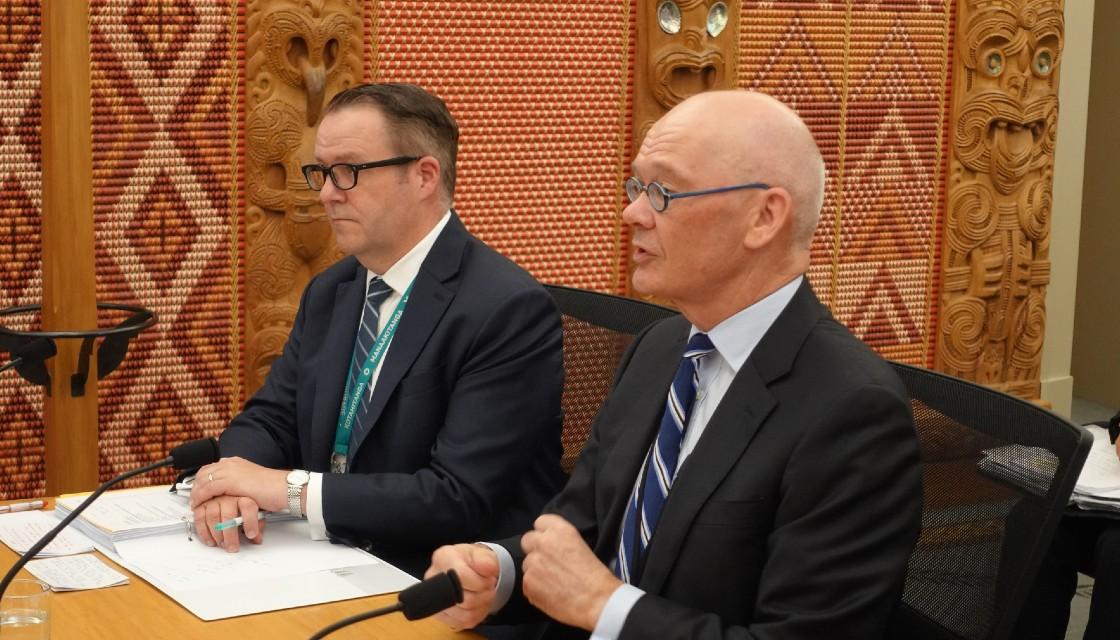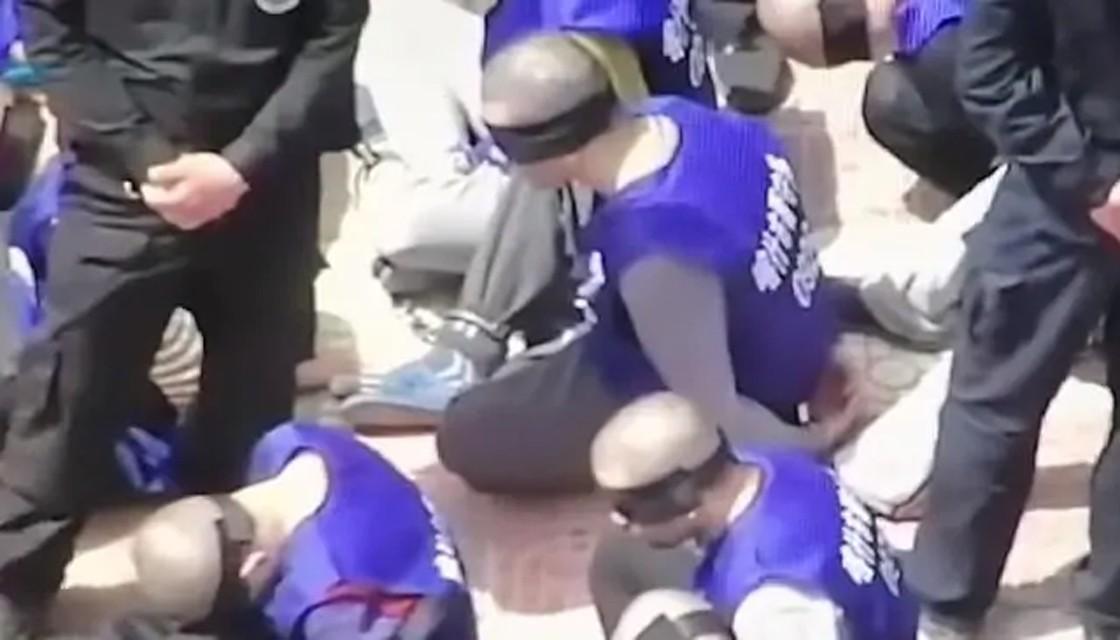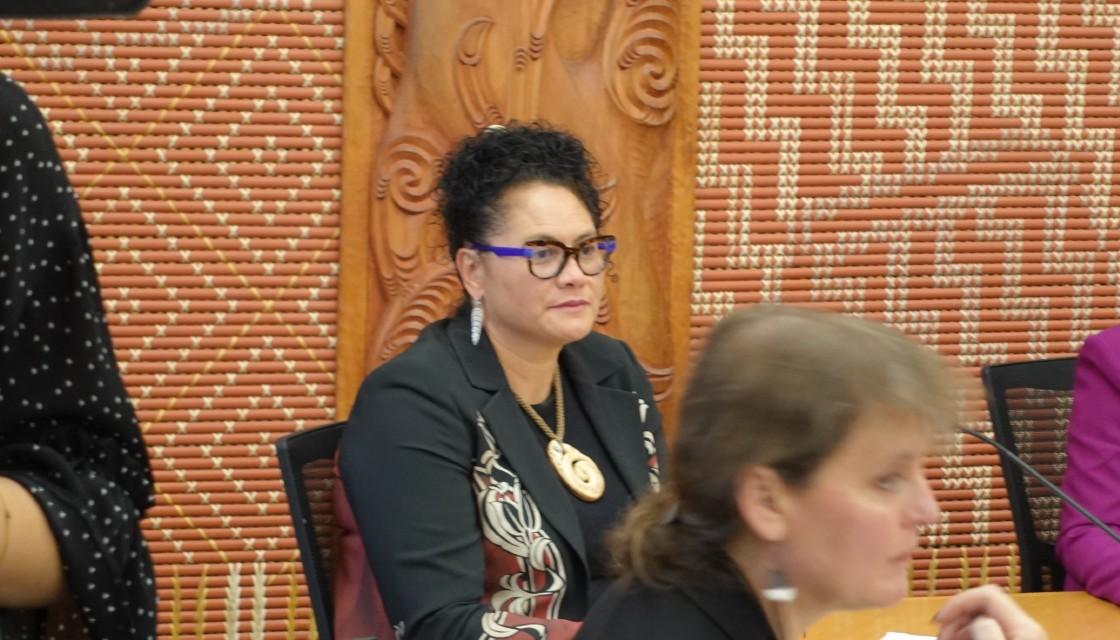Foreign Affairs Secretary Chris Seed says evidence around alleged mistreatment of Uighurs is of "great concern" and discussions with China are "ongoing" about a visit by New Zealand diplomats.
It's estimated more than a million Uighurs - a mostly Muslim Turkic minority group that number about 11 million in China's Xinjiang region - have been detained in camps, which have been widely condemned as akin to prisons.
Seed, who served as High Commissioner to Australia and now heads the Ministry of Foreign Affairs and Trade (MFAT), was grilled by MPs on Parliament's Foreign Affairs Committee on Thursday about how New Zealand is helping the Uighurs.
"We've been quite clear that there a significant body of information, much of it in the public domain including recently, that there are a range of activities that go on in Xinjiang that don't align with New Zealand values and that we would consider unacceptable," Seed said.
"That's why it's part of my agenda for my foreign ministry consultation with my counterpart. Part of it is we're saying this information is there - people might want to dispute what certain individuals are saying, but the body of evidence speaks to matters of great concern."
China says they offer classes on Mandarin, laws, regulations and vocational skills, and provide counter-terrorism training and psychological counselling for those affected by "extremist thoughts".
But the BBC has gathered testimonies from women who spent time in the camps, detailing allegations of gang rape and sexual abuse.
Former detainees have spoken of torture and brainwashing at the facilities, and women being forcibly sterilised. In July 2019, a Uyghur man in New Zealand told Newshub Nation he feared for his safety after receiving threatening phone calls from the Chinese Embassy.

National's foreign affairs spokesperson Gerry Brownlee asked Seed if MFAT has discussed with the Government the prospect of sending officials to Xinjiang to check it out.
"We've regularly supported the idea of a visit by the UN High Commissioner for Human Rights. We also talked to the Chinese Government about visits, including by our diplomatic staff," Seed said.
"They are certainly willing to have our people go. They make much publicly of this, that diplomats from many countries go. We want to be very clear that if we visited, the basis on which we'd be able to make inquiries and meet our free movement and talk to who they want, and that sort of thing."
New Zealand is yet to declare the alleged mistreatment of Uighurs in China as genocide. Both Canada and the United States have done so, and ACT leader David Seymour has called on our Parliament to do the same.

The Government has joined with our allies in issuing statements of concern about the situation in Xinjiang. Prime Minister Jacinda Ardern raised the issue directly with Chinese President Xi Jinping and Premier Li Keqiang during her 2019 visit.
But Labour MP Louisa Wall, a member of the Inter-Parliamentary Alliance on China, wants New Zealand to go further than "symbolism".
"We need to implement law that upholds us being a good global citizen. At the heat of all this is who we are as New Zealanders and where we draw the line and then how we influence that line," she said during the committee meeting.
"That's why we have rule of law, that's why we have international bodies, because at some point in time we just have to stand up for certain things."

Wall wants New Zealand laws developed to prevent us from trading with regions where there is suspicion of modern slavery.
"The US for example, because they have sufficient legislation, have now essentially banned all goods coming from Xinjiang because they have declared there has been genocide, but also they have the mechanisms to now say no company can take goods from there," she said.
"I'm wondering if there's been any work around our fit-for-purpose legislative regime and what we can do. Yes, we can make declarations like other countries have, but actually I'm more interested in the legislative framework."
The US House of Representatives introduced legislation that bans imports from Xinjiang unless it's certified they are not produced with forced labour. Former President Donald Trump also imposed sanctions on officials and companies linked to Xinjiang.
Seed said it's true that New Zealand doesn't have legislation which specifically addresses the issue of forced labour.
"There's actually a draft plan of action… which will create industry standards around this. But there is at the moment no legislative basis," he said. "That is a policy option that might be of interest to the Government."



